Special Issue: Say The Name, DON QUIXOTE
What Neiyu Fans Need, Seen Through SEVENTEEN: A Case Study (Part 1)
Hi there. Welcome to the Summer Specials of Active Faults.
"K-Pop is returning [to us] for real this time" trended on Weibo when SEVENTEEN attended an awards ceremony in Macau and hosted a fan sign event in Guangzhou a few months ago. They are one of the first K-Pop groups to set foot on mainland and make an appearance in years, a sign that the Korea Ban may finally be phased out.
Here’s a video of Jeonghan, a SEVENTEEN member, putting on a wedding veil as per the request of his fans at the fan sign. Warning: Lower your volume.
SEVENTEEN being among the first to test the waters makes sense. The screams represent but a fraction of the 13-member group’s sudden surge of popularity in China in the past three years. They’ve swept across multiple fan enclaves, a unifying force that engrosses both K-Pop and non-K-Pop fans like a perfect storm in the midst of a pandemic that halted tours, promotional schedules and new content. Somehow, against all odds, they amassed a swath of devoted Carats and Cubics (the name of their fans) at an impossible time, in a country that’s increasingly less approving of foreign cultural influences. What, then, does that say about neiyu and neiyu fans?
Self-Sufficiency
Globally, SEVENTEEN’s latest release (ironically named) “F*ck My Life” is the best-selling album in the history of K-Pop, breaking the record of BTS. China Inputs statistics stand at 2.5M+ albums bought, accounting for 40% of overall sales so far. The minimum spending on albums of those attending that Guangzhou fan sign is rumoured to be at 6,000 copies, a figure high enough to draw criticism from the public labelling such purchases as toxic, unpatriotic behaviours. K-Pop fans promptly retorted that they’d gladly invest in Made in China idols if only neiyu has a passable group that does its job really well: producing good music and curating good performances.
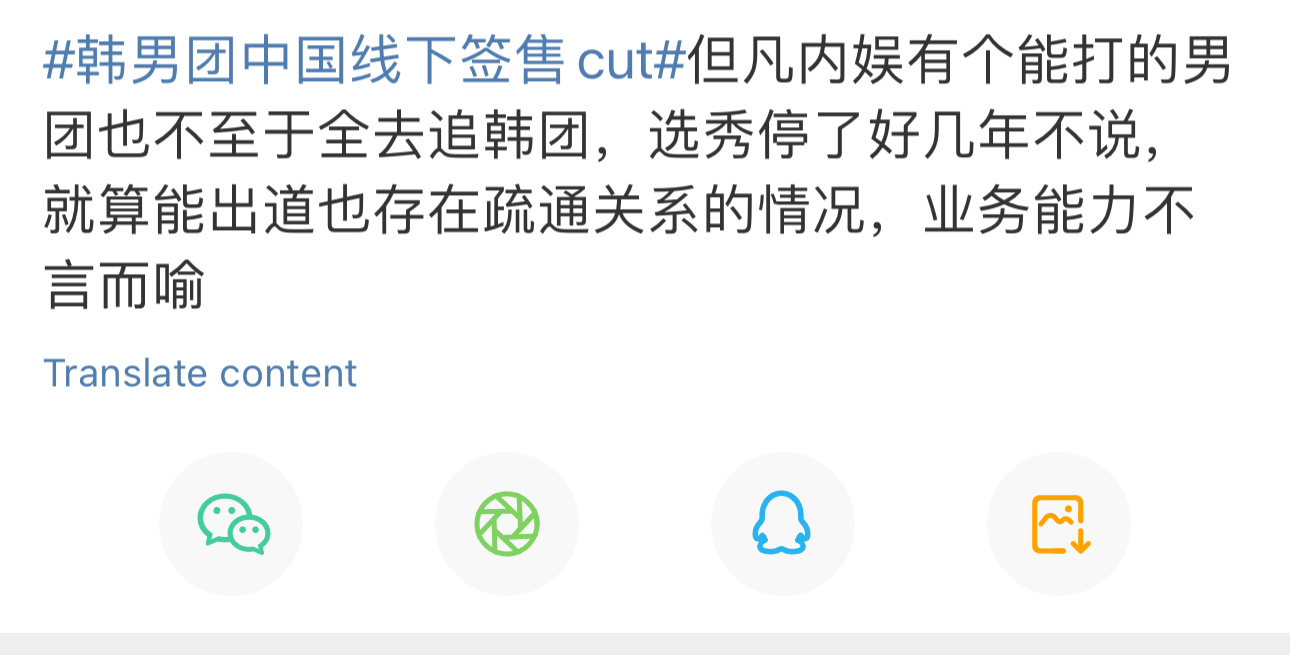
And that’s what SEVENTEEN is known for. Acclaimed as “self-sufficient idols”, they had control over their works from the very start. The group consists of a prolific songwriter and producer, WOOZI, a full member of Korea Music Copyrights Association with over 120 songs credited to his name. They also have a resident choreographer, HOSHI, who observes his teammates’ day-to-day movements for inspiration. This gives them a degree of creative freedom, ownership and authority that’s extremely rare in both South Korea and neiyu. They churn out “no-skip” albums mostly without company-mandated fillers or “TikTok Tracks” that are meant to be doing the numbers, only commercially viable and not aesthetically consumable.
Unusual again for a K-Pop group, their discography has been polymorphic, part of that diversity owing to the group’s unit structure. The 13 members are sub-divided into Hip-Hop, Vocal and Performance units based on their specialties. In a standard SEVENTEEN album, there will be songs that showcase each unit’s expertise. Rappers from Hip-Hop unit chip in their EDM-heavy, auto tune-added hype tracks; performers would sing to sexier, more flamboyant and groovy songs that serve to complement the choreography; while vocalists’ focus is on melodic ballads and lyricism that seek audience resonance. That’s step one in neiyu fans’ descent into carat-land: enjoying their consistently palatable bangers and elaborate stages.
Super
The title track of “F*ck My Life”, “손오공” (Eng: Super) is a super catchy “luscious anthem”1 with hard-hitting beats and a notoriously flashy choreo, almost too difficult to grasp for others to do TikTok challenges on. The music video, unlike those currently in fashion, is not threaded by a metaphysical storyline and multiple costume changes. It is instead characterised by the mega crew concept, featuring over 200 backup dancers and a single grandiose set for maximum visual impact.
Lyrics-wise, “Super” is inspired by Sun Wu Kong, one of the most well-known Chinese mythological figures and protagonist of the classical text A Journey To The West. That segues well onto my second observation: neiyu fans especially warm up to SEVENTEEN because it is relatively mainland-friendly. Their interpretation of the Monkey King was seen as respectfully true to the original tale with accurate attributions. In addition to commercial success, the song actually inspired incredible fan adaptations of the song into Chinese. Here are highlights from a personal favourite deliberately untranslated (sorry) because the poetic nuance will be lost:
磨难正合口味
要踏踩着骨堆
才和吾名号相配 对胃
驾雾凌空大闹天宫
我一棒挥去带着烈风
仿若齐天大圣孙悟空
This fan even delivered a killer performance. Singing the song herself, the video attracted over 1.06 million views. This rendition of “Super” managed to capture the versatility of the Chinese language. The syntax blends well with the original rhythm, the rhyming pattern enhances the impact of the narrative and the narrative matches the dance moves.
Eye-catching touches are numerous. The nonsense refrain, “Da-rum-da-rim-da” from the Korean original has been changed to “阿啰跛者曩”, the Chinese translation of the Manjushri mantra representing perfect wisdom and overcoming sufferings, tapping into Buddhist elements in the original myth. This transcendence of the Monkey King is balanced by descriptions of his profane hubris, somewhat justified by his bravado, tact and dissenting spirit.
In this version of the lyrics, Sun Wu Kong kills and wears a monastic robe. He is damned and sanctified. He gloats and mocks and provokes, wallows and mourns and relishes in his fate of being an anti-hero. As a comment writes, this adaptation shows foreigners the essence of this figure, which is his personal struggles and fascinating moral greyness. Many encourage the lyricist to post this cover on YouTube or Twitter for wider visibility as a form of cultural export. The comments section is also filled with fan (and non-fan) discussions of the myth, Chinese artistic motifs and other classical texts.
Meanwhile, another noteworthy adaptation is not written in Mandarin but Cantonese. It is a nostalgic salute to the 1995 film A Chinese Odyssey (大话西游), another culturally significant classic made in Hong Kong that does a comedic take on Sun Wu Kong. A comment aptly summarises the core of the Monkey King in this particular rendition: his insanity and hysteria that strikes a special cord to those living in the Cantonese-speaking regions who grew up (re)watching the movie.
What we see here are varied acts of cultural reclamation in the form of fan practices. Chinese carats were able to creatively and collectively consolidate their cultural identities, not without active enabling on SEVENTEEN’s end.
In the lines distributed to him, Xu Minghao, a Chinese member of the group pronounced 손오공 as Sun Wu Kong in the Chinese way instead of the Korean way of Son O Gong. Both he and his Chinese teammate Wen Junhui have always made their heritage distinct, often returning to mainland for solo ventures which introduced many Chinese to the group. Unlike other Chinese K-Pop idols who hesitate to mention their group when working in China to fit in neiyu, Xu and Wen handled their duality with honesty on both ends.
On the other hand, SEVENTEEN’s general leader, S.COUPS, frequently asserts that one of the group’s goals is to ensure the Chinese members feel included and make music that will dignify them in their hometowns. It is one of the most unambiguously supportive messages regarding Chinese members I’ve heard in years. As a group, SEVENTEEN appears on Chinese live-streaming platforms to play video games, regularly enjoy Chinese cuisines, learnt Chinese to greet fans (and Xu/Wen’s parents at concerts).
In short, SEVENTEEN’s popularity in neiyu is driven by an appreciation of being culturally recognised, accepted and valued. Content like “Super” shows a genuine interest in China, and it’s good enough to inspire fan spin-offs. The presence of Chinese members makes the group feel homey to neiyu fans. Seeing Chinese-ness being well-respected and treated with ease within a K-Pop group is only more appealing.
Hot-blooded Fools
Multiculturalism was seen as one of the many fatal flaws that will destroy SEVENTEEN. Their managing company, Pledis Entertainment, was on the brink of bankruptcy when they were still middle schooler trainees. Their debut date was pushed back repeatedly - “we told ourselves we’d debut next month and kept practicing, and we lived like that for two years”, S.COUPS once said. The company deputy allegedly mortgaged his house for the boys to finally debut in 2015, only to be faced with powerful competitors in the industry. Their contemporaries were EXO and BTS, going head to head at every instance and leaving virtually no cake for a “nugu” with a bewildering number of faces.
They started with a budget so low they couldn’t afford professional in-ears, opting for taping wired earphones to their faces during music shows instead. Hunger was kind of the norm. They skipped meals because keeping 13 teenage boys fed was costly; felt trapped in a dingy practice room in the basement after dancing for better parts of a day; packed lunches for overseas trips since restaurants were too expensive. They became self-sufficient not because they wanted to, but because it was the only choice.
It didn’t look promising, but they kept at it. They got their first music show win in a little under a year, and started to win more and more. Practice did not stop: SEVENTEEN still has one of the highest synchronization rates among idol groups when it comes to dancing.
One of their most popular lyrics in China sums them up well: “we built a building from the basement unit”. In the past 8 years, SEVENTEEN is said to have completed a full character arc. The underdog narrative becomes a trope to (successfully) attract so many new carats, who are now beginning to call them “hot-blooded fools” (热血笨蛋) in an affectionate and admiring tone. Their diligence, perseverance and assertiveness at times of utmost despair stop just short of foolishness, and yet they put in enough work for their dream to be realized. Their story is a tale of Sisyphus with a happy ending that a generation of us needed to hear.
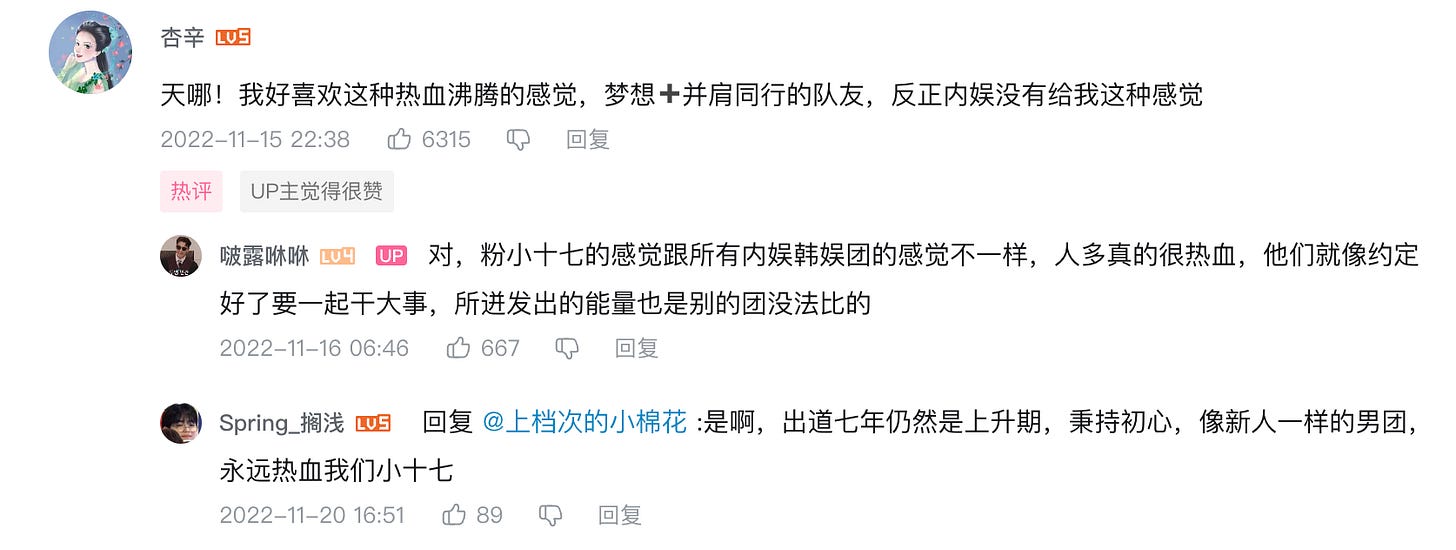
This is best shown through their concerts. Another major 入坑 (literally “pit-entering”, becoming a fan) occasion for Chinese carats, their concerts are known to be all-out, intensely blood-pumping and every bit worth the money. Their last world tour played 29 shows that were 3-4 hours long on average. To ensure maximum fan interaction, they started a tradition called “infinite encore” with their biggest single “Very Nice”, where they’d pretend to leave before returning to the stage upon fan demand again and again. At their latest concert in Seoul a few weeks ago, they played Very Nice 15 times which ended with the members sitting down on the floor, completely burnt out and exhausted.
Fans have called these shows life-saving. The positivity and energy exuding out of their stage presence convinced many that life is worth fighting for. It brings enough of a dopamine hit to encourage people as they navigate through their daily struggles. That would also explain why SEVENTEEN emerge out of COVID-19 as unexpected winners. Many Chinese carats found their performances comforting in a disorienting world.
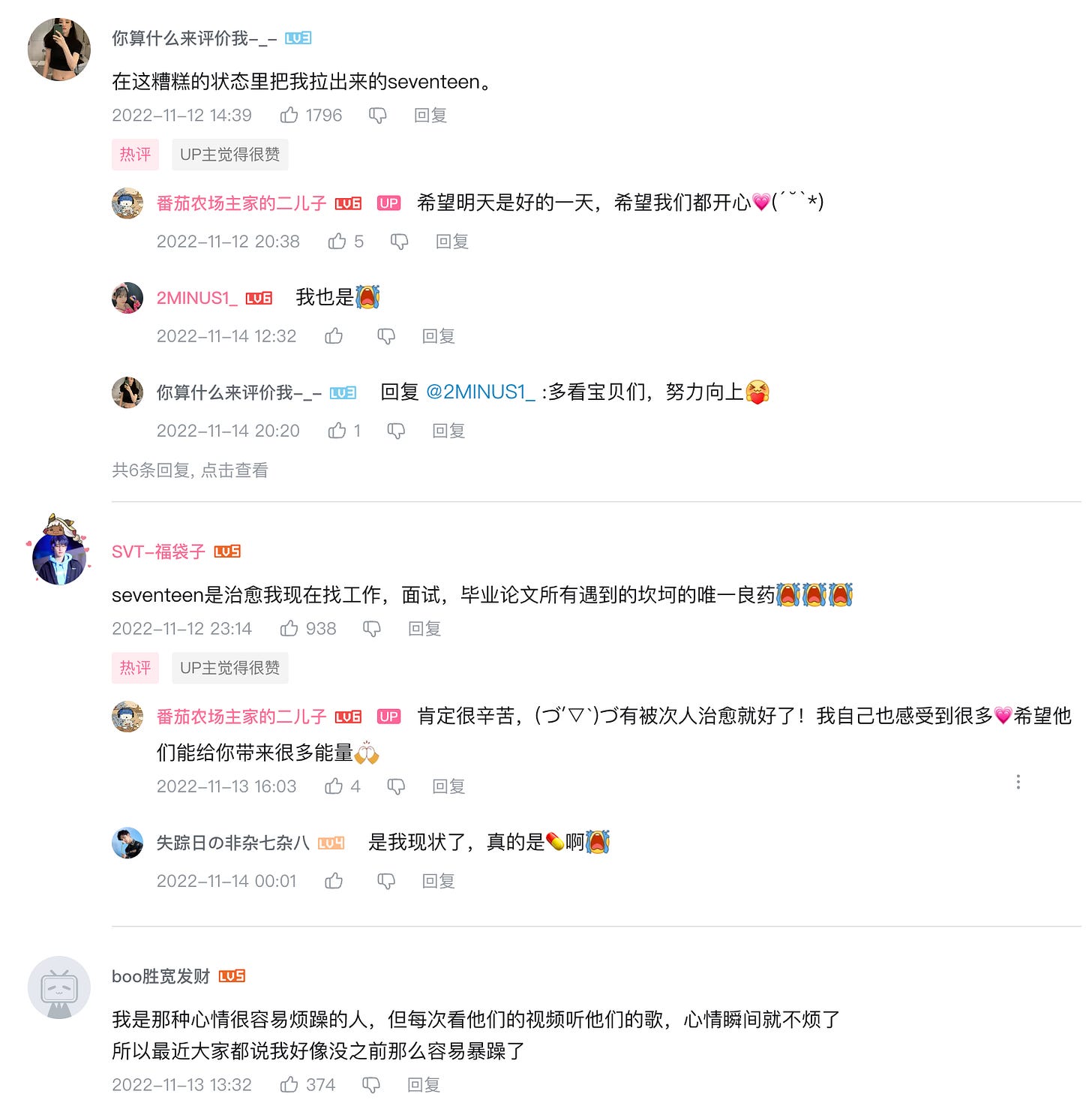
After COVID-19, neiyu cannot resist a song like “DON QUIXOTE”, another one of SEVENTEEN’s autobiographical tracks that establishes a parallel between themselves and the Man of La Mancha. The lyrics go:
People point their fingers, it ain't real, it ain't real
I'm not afraid, it's real, it's real
I don't care if you say I'm crazy, a night where I burned my everything
So come and call me Don Quixote
Inside my boiling heart
Ice and motivation
My new name tag
Says "out of control"
*Now push for* (What I want)
*Go for* (What I want)
*Do what* (What I want)
Say my name Don Quixote, there's nothing to be afraid of
Pay my day, I'll bet everything on tomorrow
I know me, you don't know me well
I'm born of fear, and I got back on a horse without fear
Like Sun Wu Kong, Don Quixote carries that tragic hero quality comparable to SEVENTEEN and their arduous journey to success. It is a satisfying plotline to follow: the humble beginnings, the ordeal, the eventual accomplishment. What Chinese fans want through SEVENTEEN is a brief moment of believing. Knowing that you can have faith in a seemingly unreachable illusion no matter how unfounded it seems. That you have control over your fate. That the world mistook your determination as stubbornness - your courageous chance-taking as madness - and they’re about to be proven wrong.
We want to believe that we’ll be able to sow and reap the rewards.
To be continued in the next issue. See you then!



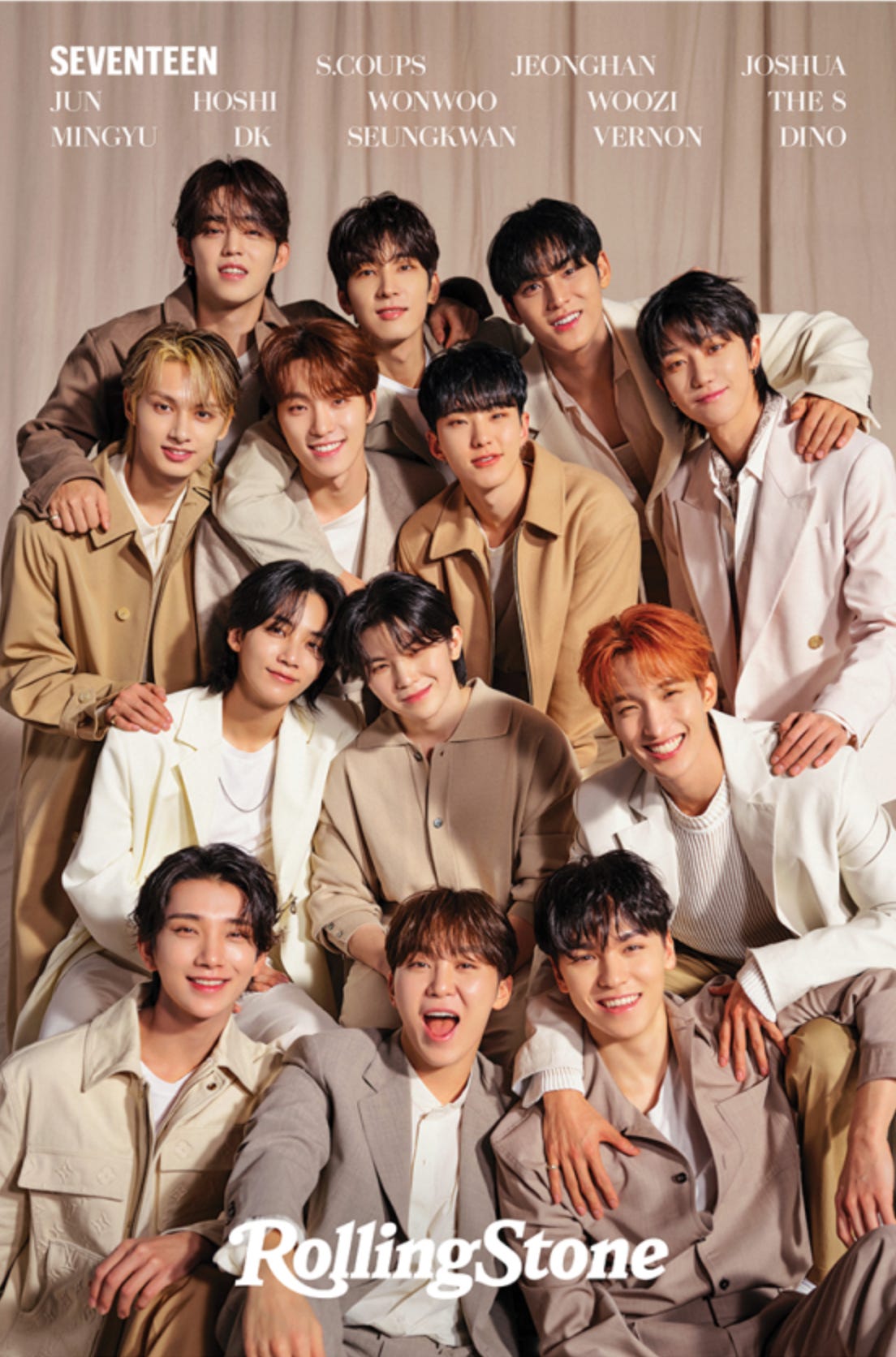
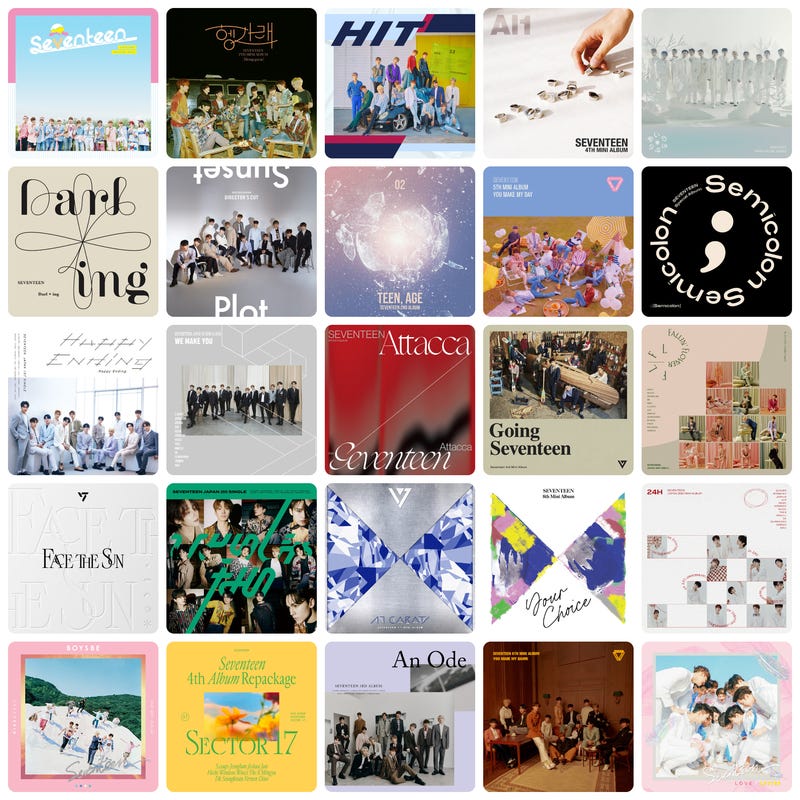
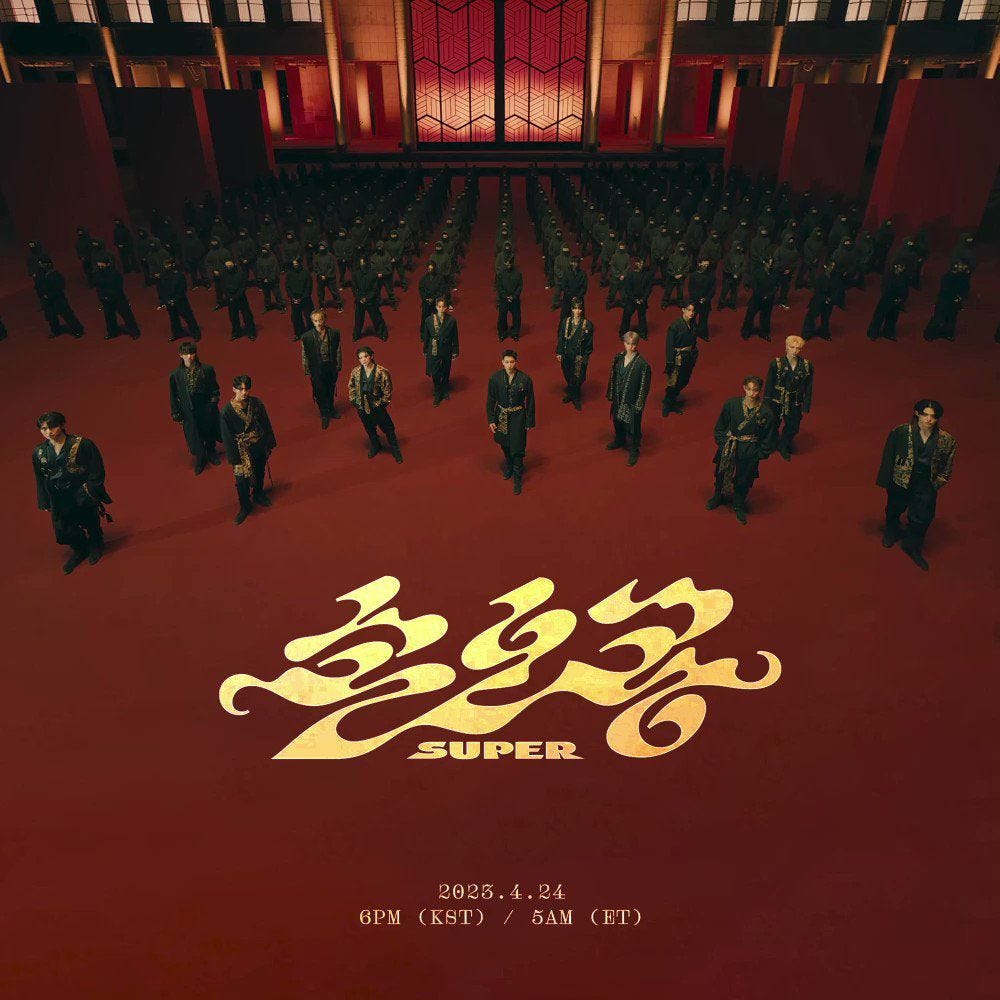
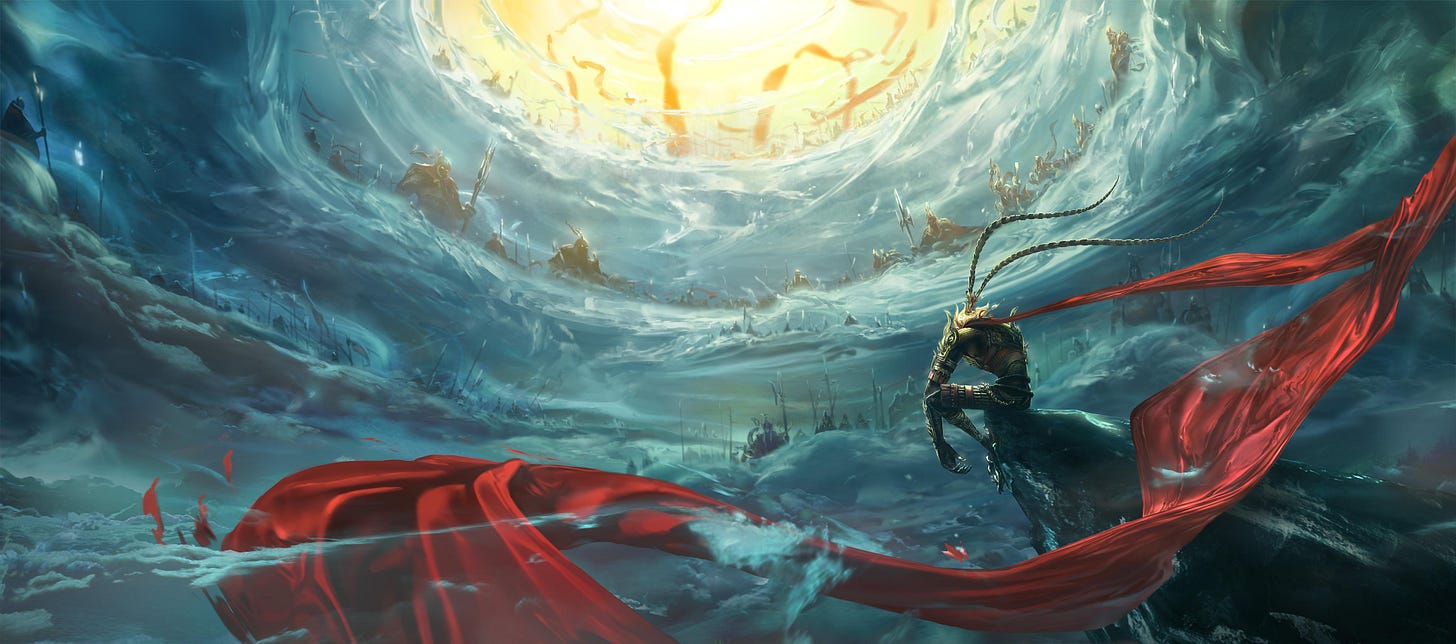
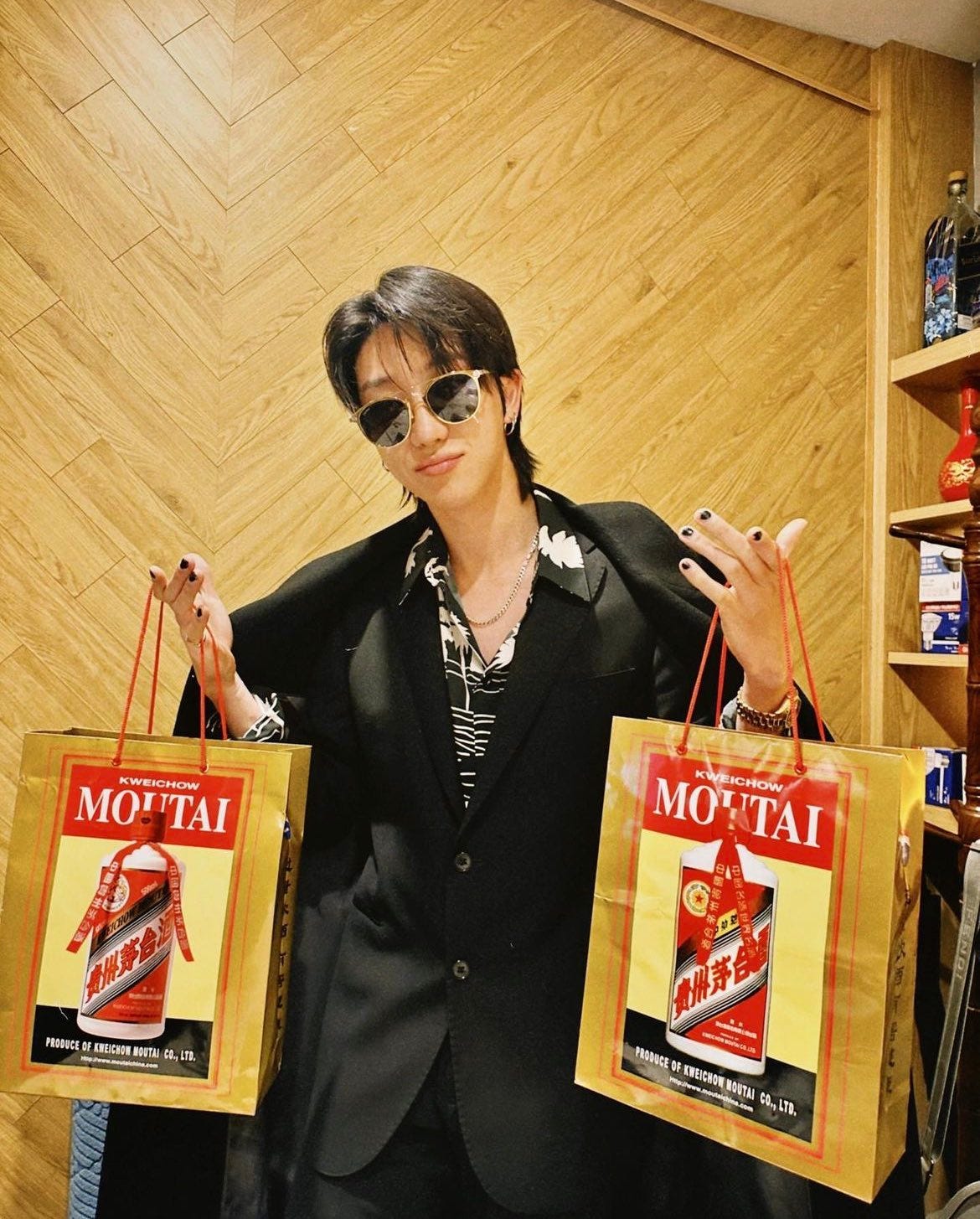
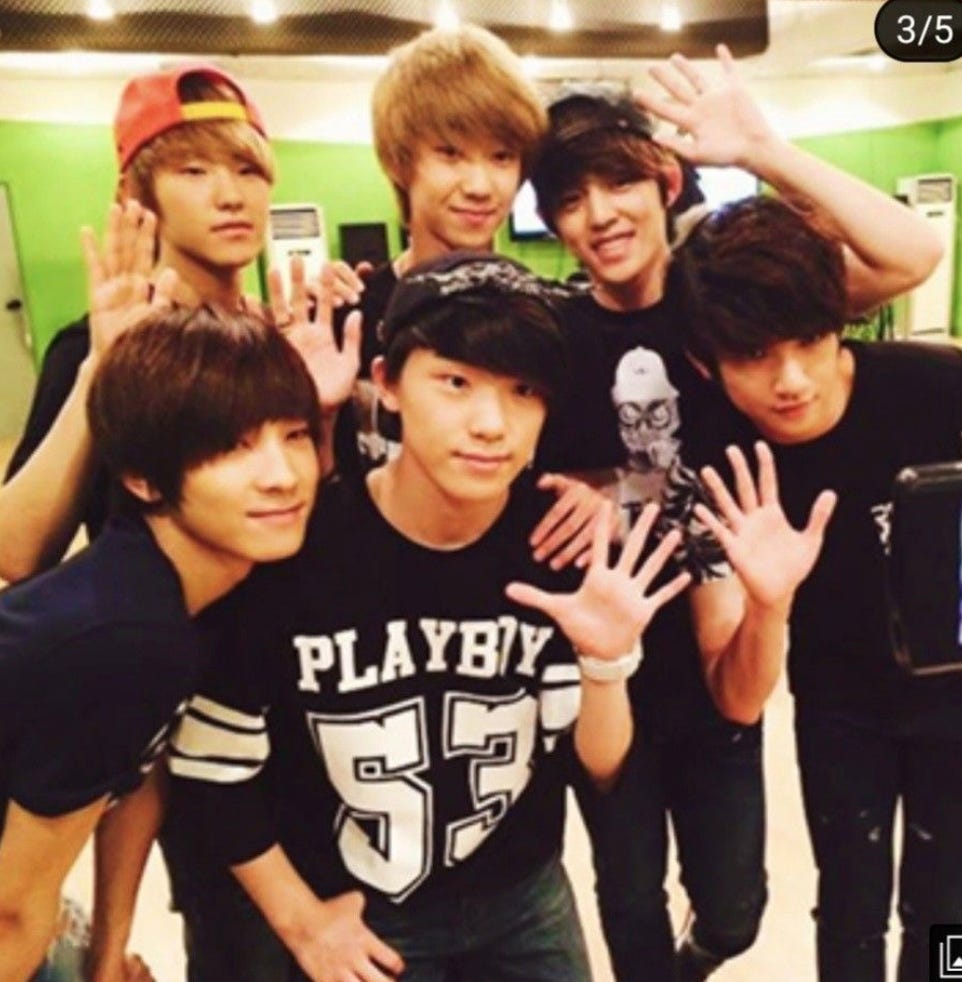
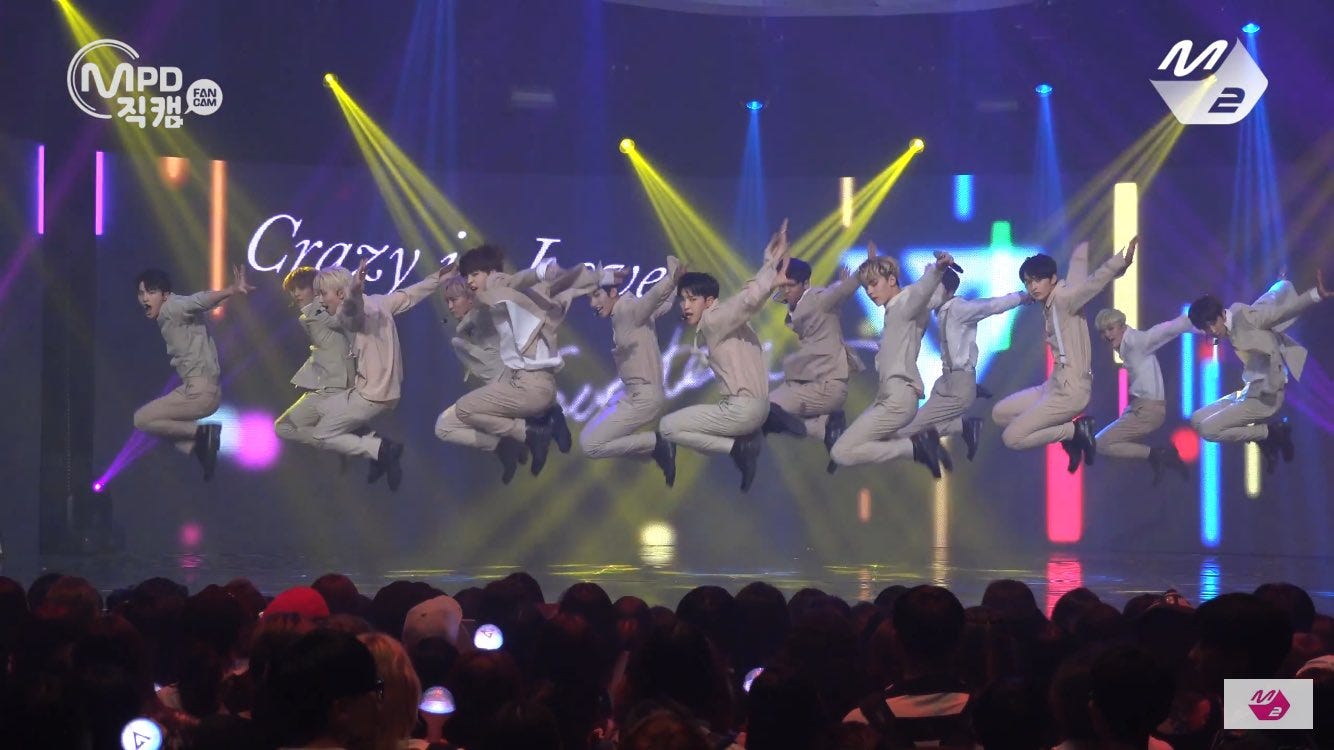
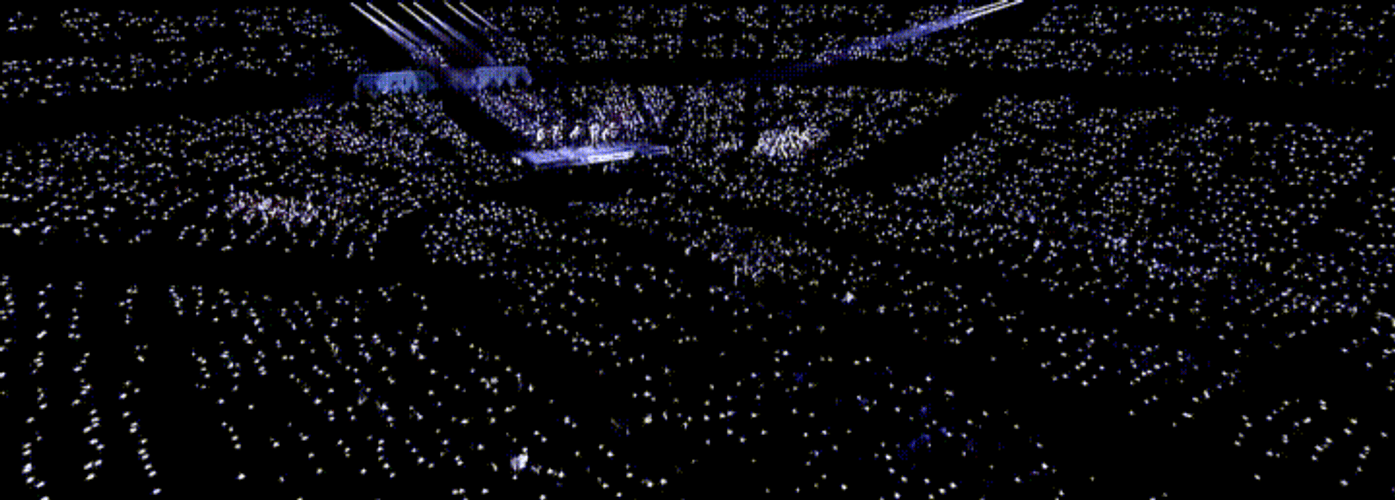
any chance you could link the super cover? I also happen to like seventeen, but mostly because a lot of male group songs tend to be so aggressive and testosterone-y? lol, but seventeen has some balance in there, like aju nice and pretty u